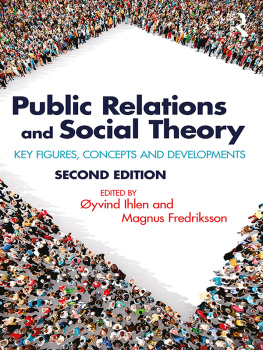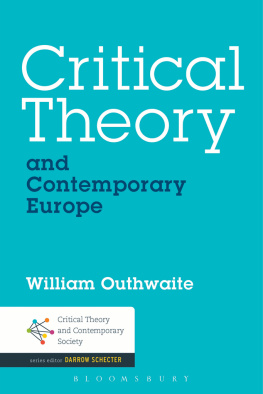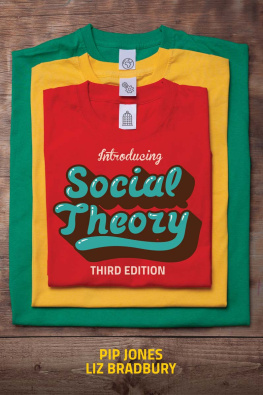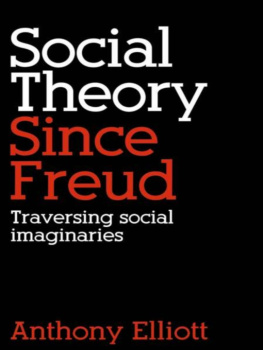SAGE Publications Ltd
1 Olivers Yard
55 City Road
London EC1Y 1SP
SAGE Publications Inc.
2455 Teller Road
Thousand Oaks, California 91320
SAGE Publications India Pvt Ltd
B 1/I 1 Mohan Cooperative Industrial Area
Mathura Road
New Delhi 110 044
SAGE Publications Asia-Pacific Pte Ltd
3 Church Street
#10-04 Samsung Hub
Singapore 049483
Matthias Benzer and Kate Reed 2019
First published 2019
Apart from any fair dealing for the purposes of research or private study, or criticism or review, as permitted under the Copyright, Designs and Patents Act, 1988, this publication may be reproduced, stored or transmitted in any form, or by any means, only with the prior permission in writing of the publishers, or in the case of reprographic reproduction, in accordance with the terms of licences issued by the Copyright Licensing Agency. Enquiries concerning reproduction outside those terms should be sent to the publishers.
Library of Congress Control Number: 2018960846
British Library Cataloguing in Publication data
A catalogue record for this book is available from the British Library
ISBN 978-1-4739-0783-6
ISBN 978-1-4739-0784-3 (pbk)
Editor: Natalie Aguilera
Assistant Editor: Eve Williams
Production editor: Katherine Haw
Copyeditor: Camille Bramall
Proofreader: Rebecca Storr
Indexer: Elizabeth Ball
Marketing manager: George Kimble
Cover design: Stephanie Guyaz
Typeset by: C&M Digitals (P) Ltd, Chennai, India
Printed in the UK
At SAGE we take sustainability seriously. Most of our products are printed in the UK using responsibly sourced papers and boards. When we print overseas we ensure sustainable papers are used as measured by the PREPS grading system. We undertake an annual audit to monitor our sustainability.
About the Authors
Matthias Benzeris Lecturer in Sociology in the Department of Sociological Studies at the University of Sheffield. He previously worked as a researcher at the Centre for Analysis of Risk and Regulation at the London School of Economics and Political Science and as a Lecturer in Sociology in the Department of Sociology at the University of Manchester. He is the author of
The Sociology of Theodor Adorno (2011, Cambridge University Press) as well as writings on critical theory (published in the
Journal of Classical Sociology and
Philosophy & Social Criticism) and poststructuralist social thought. Matthias is also currently conducting research on social and political questions regarding resource allocation in the United Kingdom National Health Service.Kate Reedis Professor of Sociology in the Department of Sociological Studies at the University of Sheffield. She is currently Principal Investigator of the Economic and Social Research Council funded project End of or Start of Life? Visual Technology and the Transformation of Traditional Post-Mortem. Her research interests are focused on the areas of reproductive genetics, gender, technology and health, and social theory. Kate is the author of
New Directions in Social Theory: Race, Gender and the Canon (2006, Sage) and
Gender and Genetics: Sociology of the Prenatal (2012, Routledge).
Introduction
In sociology, the idea that people live in society is widely accepted. At the same time, this idea is not always made explicit in sociological research. Social theory comprises attempts to conceptualise, analyse, understand, explain, and critically scrutinise social relations and conditions. The questions that this area of sociology has addressed in the twentieth and twenty-first centuries have included whether current social conditions must be considered as radically modern, postmodern, or not at all modern, where the lines of social inequality and discrimination are drawn, how relationships of power are shaping the social world, how social relations and social interaction are to be characterised, and where the potential for the transformation of society lies, to name a few. A range of social theorists, crucially, have, in their endeavours, explicitly raised and examined the problem of living in society. In other words, they have sought to investigate human life in social relations, contexts, and conditions. Social Life contains expositions, explorations, and discussions of such work in contemporary social thought. The focus of the book rests on eight socio-theoretical analyses of social life: writings by Anthony Giddens, Pierre Bourdieu, Bruno Latour, Donna Haraway, Zygmunt Bauman, Jean-Franois Lyotard, Michel Foucault, and Jean Baudrillard. The works of these sociologists have had a tremendous impact on the sociological research of the present day. The following chapters aim to highlight, detail, and discuss the contributions and challenges of the analyses of social life put forward by these eight thinkers to sociologys ongoing quest for conceptualising and interrogating the contemporary social world.
The chapters approach the socio-theoretical ideas under discussion from two angles. Each of the social theorists in focus has developed a set of concepts, statements, and arguments for analysing and critically scrutinising contemporary social relations and conditions. The first part of every chapter concentrates on decisive elements of those conceptions of, arguments about, and inquiries into, present-day society. At no point does this amount to a summary overview either of the respective body of thought in its entirety or even of large parts of it. Instead, the first parts of the chapters identify and spotlight key components of each thinkers conception and analysis of contemporary society and explore those in detail. At issue are elements that have made particularly sustained contributions or raised particularly far-reaching challenges to sociologys project of critically examining the social world of today. For instance, an elaborate account of Foucaults thinking about power is prioritised over a summary of his major interventions from the 1960s and 1970s tout court. In a similar fashion, a detailed exposition of Baudrillards distinctions between the way in which life and death are treated in symbolic exchange relationships and the way in which they are treated in capitalist society is offered instead of an overview of his entire work on the symbolic, illusion, reality, simulation, and hyperreality.
Informed by their conceptions of social relations and conditions, each of these thinkers interpretations, examinations, and critical interrogations of the social world has, in turn, in different ways informed their investigations of particular phenomena of that world. The second part of every chapter discusses the respective theorists analyses of the ways in which the wider social contexts in focus in the first part shape, manifest themselves in, are expressed through, and receive influence from more specific phenomena. At the centre of attention here are chiefly phenomena or phenomena that resemble phenomena many people are likely to have experienced immediately, may frequently hear or read about, or are simply able to imagine independently of having been exposed to sociological research. For instance, discusses climate change as Giddens problematises it sociologically. The aim of the second part of each chapter is to elucidate ostensibly abstract theoretical ideas about prevalent social relations, contexts, and conditions by linking them to analyses of such phenomena.











